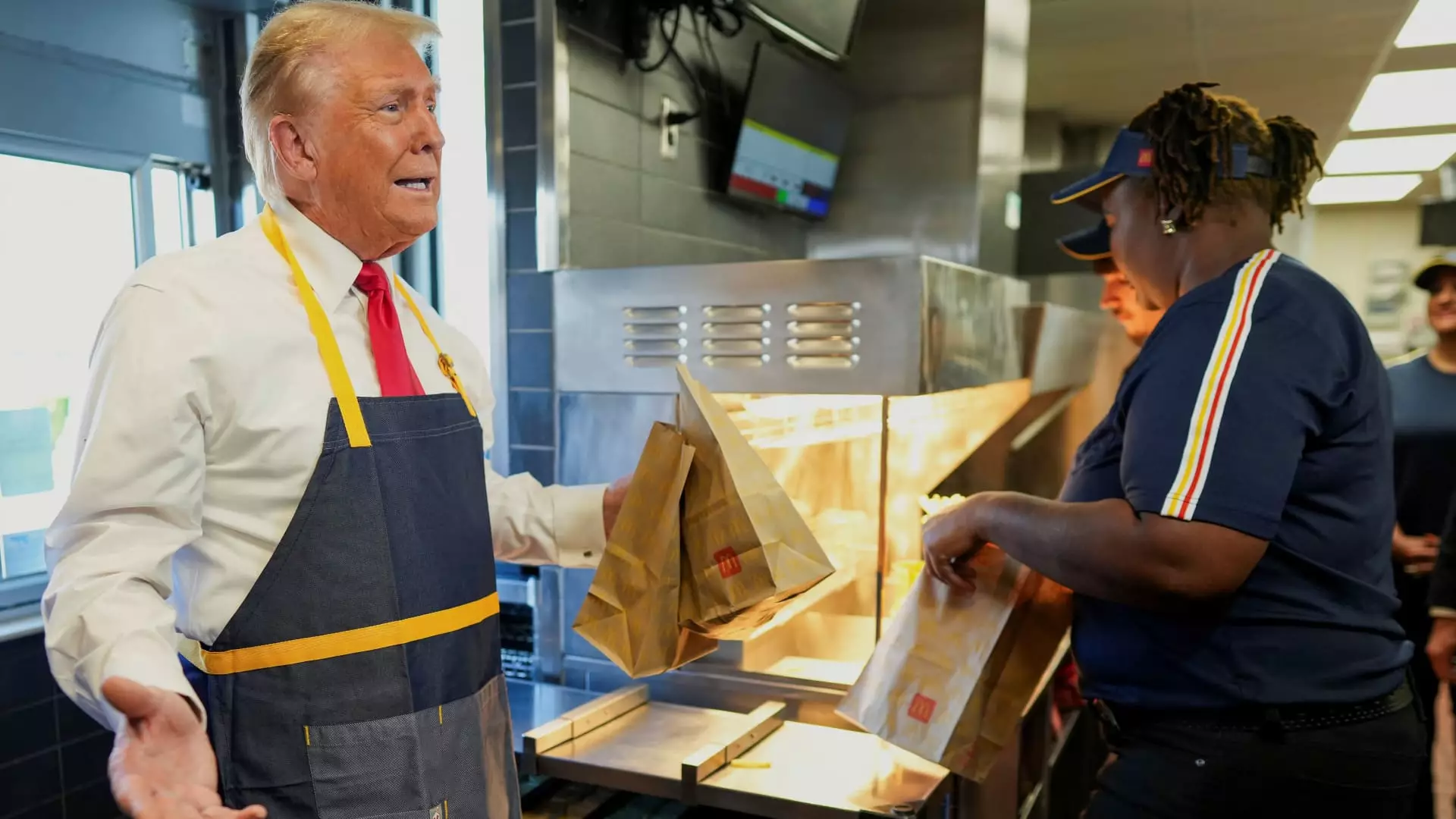In the contemporary political landscape, fast-food chains have found themselves inadvertently entwined in the fray of political discourse. A significant illustration of this phenomenon is the recent visit of former President Donald Trump to a McDonald’s outlet in Pennsylvania. This encounter not only highlighted the intersection of politics and popular culture but also raised pertinent questions about corporate neutrality during electoral seasons.
McDonald’s, while often embraced as a cultural staple in America, is navigating complex waters in a politically charged environment. In response to Trump’s visit, the company issued an internal statement affirming its commitment to neutrality in the presidential race. Their declaration emphasized that McDonald’s does not endorse any political candidate, a stance underscored by the recent electoral backdrop where the brand’s involvement had become a talking point. This effort to maintain a non-partisan image reflects a broader trend within Corporate America, which strives to distance itself from controversial political affiliations to cater to a diverse consumer base.
Trump’s foray into the fast-food world, where he reportedly engaged in various operational tasks, serves as a strategic maneuver rather than a genuine employment experience. By questioning Vice President Kamala Harris’s claims regarding her tenure at McDonald’s during her youth, Trump attempted to leverage the brand’s significance and soften the political discourse against his Democratic rival. This tactic was evident in the way he sought to bolster his campaign narrative, casting doubt on Harris’s credibility without substantiated proof. It’s emblematic of a political campaign that increasingly blurs the lines between entertainment and politics.
The larger issue at play is how consumers perceive corporate involvement in political matters. Despite McDonald’s efforts to embrace an image of inclusivity—asserting that they cater to all demographics—public sentiment is shifting away from the expectations that businesses should take strong political stances. Recent polling indicates a retreat from the belief that corporations should publicly engage in political issues, with only 38% of U.S. adults supporting public involvement compared to 48% a year prior. This evolution points toward a growing reluctance among consumers to see their beloved brands embroiled in the contentious debates of the political arena.
Additionally, McDonald’s navigated another controversy when adversities regarding their pricing strategy surfaced during this election cycle. Observations of steep price increases at various locations drew significant public scrutiny, leading to political critiques that tied McDonald’s rising meal costs to the Biden administration’s economic policies. Such instances illustrate how external factors, including inflation and public sentiment, directly influence a brand’s public image and operational decisions. In response, McDonald’s leadership publicly addressed the uproar, attempting to clarify their pricing practices amidst the swirling political narratives.
Amidst these political currents, McDonald’s faces the ongoing challenge of maintaining its core values while adapting to the changing dynamics of consumer expectations. Their approach to embrace inclusivity and operational transparency resonates with many, yet it places them on a precarious tightrope. The dilemma lies in balancing brand identity with the growing demand from consumers for corporations to remain apolitical. This requires a delicate handling of messaging to ensure that they do not alienate segments of their customer base who may hold varying political views.
The intersection of politics and branding, as illustrated by McDonald’s recent endeavors, raises critical discussions around corporate neutrality, consumer expectations, and political engagement. As companies navigate the complexities of modern societal values and political narratives, their responses will undoubtedly shape consumer perceptions and potentially influence their market positioning. McDonald’s example serves as a microcosm of a larger trend where corporate strategies must evolve in a way that acknowledges the intricacies of their role within the fabric of American culture. The outcome of this navigation will play a significant role in defining how brands like McDonald’s are viewed in the political and social arenas in the future.


Leave a Reply